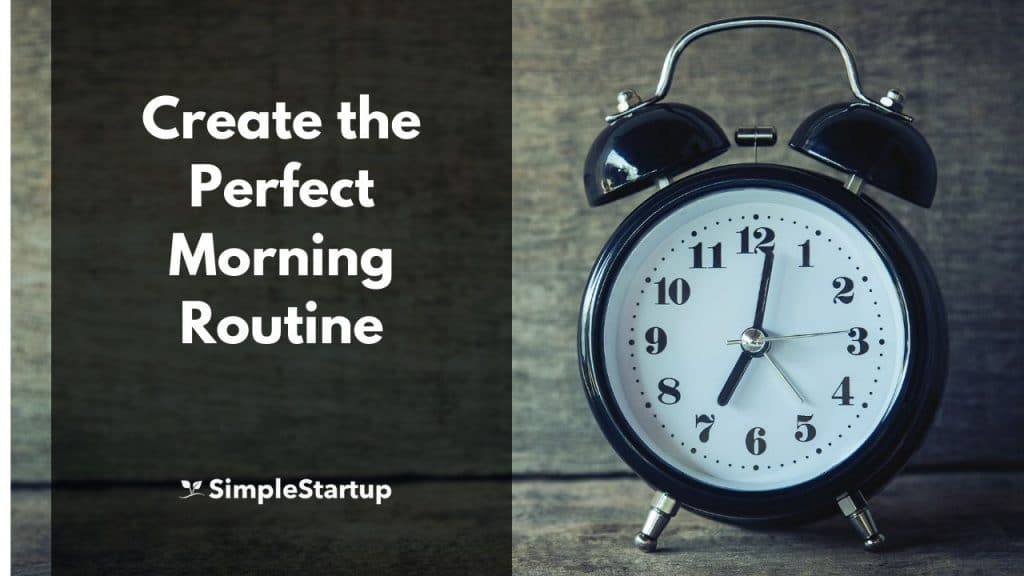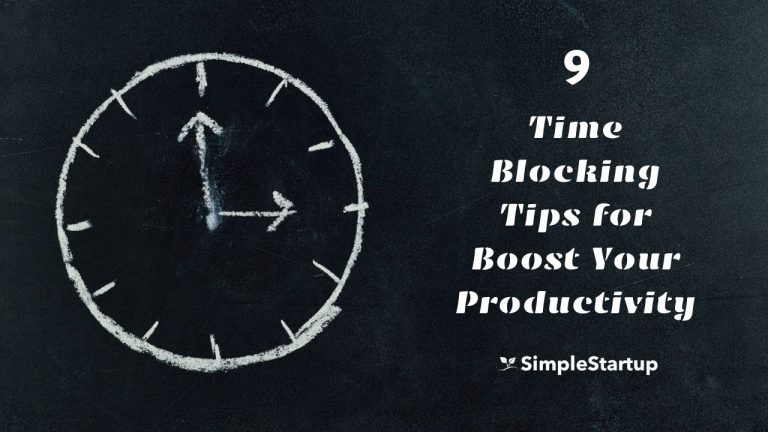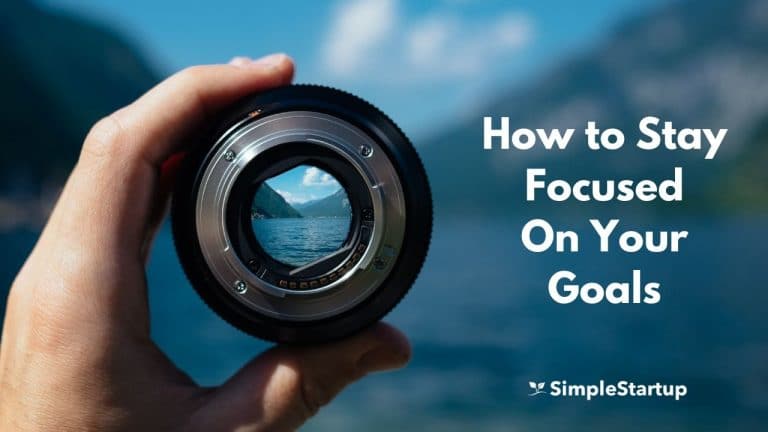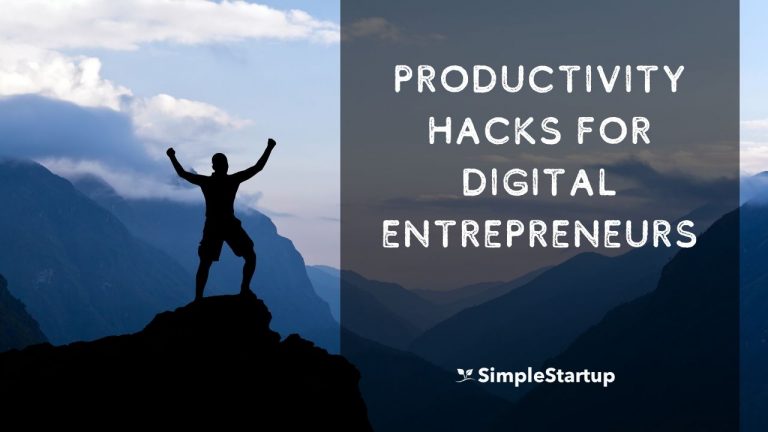
How you start your day can set the tone for the rest of the day.
If you wake up and go through the motions (e.g brushing teeth, checking email, making coffee, etc.) then you’ll probably feel the same as you normally do. The day will go by as usual.
But by creating a morning routine, you can start doing things that you’ve always wanted to do — perhaps read a good book, write, meditate, workout and so on.
Morning is one of the best times to get meaningful work done.
When you wake up after a good nights sleep — usually 7-8 hours — you also have the most amount of will power, energy and focus.
So there’s no better time than waking up in the morning and starting your day on the right foot.
Everyone has a morning ritual whether they are aware of it or not. But a lot of it is unconscious and created over years of doing things a certain way.
Our goal should be to intentionally create a morning ritual that helps us improve certain areas of our life such as our health, mind, body and soul.
By intentionally following a morning ritual, we are strengthening our body, mind and soul. It will help us build self-confidence and self-esteem. We’ll feel like we have control and are in pro-active mode as opposed to reactive mode.
In this post, I’ll share some things you can do to create a morning routine for success.
First things first
What do you do the first thing when you wake up? Do you check your email, and social media? If so, then you’re putting yourself in reactive mode because you are now putting others agendas and priorities first as opposed to your own.
When I check email and text messages, it’s from family, friends, clients and marketers. The messages usually aren’t urgent and can be responded to later in the day.
If we don’t check our phone the first thing, our brains go into FOMO mode (Fear of missing out). We fear missing an important email or text message.
Instead of laying in bed and following your regular morning routine, here’s some things you can do immediately after waking up:
Affirmations
Affirmations are the most powerful when you first wake up because you’re still in an alpha state of awareness. Your subconscious mind is more receptive to positive thoughts and feelings. So doing a short affirmation or prayer is a very powerful technique.
I’ve been doing affirmations every morning for as long as I can remember. The primary affirmations that have really made a difference in my life are “I AM” affirmations.
So you say the words “I AM” followed by a word:
- Joy
- Love
- Whole
- Peace
- Free
You can also say the word, “NOW”. This will anchor your affirmation to the present moment. So for example, “I AM FREE NOW”, “I AM WHOLE NOW”, and so on.
If you do affirmations consistently each morning for a few weeks, you’ll notice you’re in a more positive mindset throughout the day.
Gratitude
Focusing on what you’re most grateful for is also a great way to start your morning.
In the “The Shift” film by Wayne Dyer, he said that immediately after waking up he’d think of 3 things to be grateful for. Focusing on gratefulness can shift us from a place of anxiety and worry to state of mindfulness and peace.
Think of 3 things you’re grateful for when you wake up. They don’t have to be extravagant. It can be as simple as you’re grateful for your breath, having a roof over your head, for your parents, friends, etc.
Do this for the next few days and see how you feel. If you have a journal, write down those 3 things if possible.
There’s also an app called “Gratitude” which you can download to help keep you on track.
If you’re looking for something not digital, there’s also a morning journal called “The Two Minute Journal” by Neil Pasricha”, the author of The Happiness Equation. I found it while looking for new planners at Indigo and liked the simplicity of it. On every page, there’s a section for writing down, “I will let go of…”, “I am grateful for…” and “I will focus on…”. There’s enough for 365 days, so try doing this exercise every morning and see how it changes your perspective.
Meditation
Meditating in the morning is a great way to improve your concentration, help you relax and boost your energy.
There’s a noticeable difference in my mental clarity, energy and focus if I don’t meditate every day. I’ll find myself more stressed and reactive throughout the day. So each day before I wake up I put on a timer for 25 minutes and meditate.
If you’re up for it, I’d recommend meditating twice per day — once in the morning and again in the evening or before sleeping. The evening sessions will help you replenish your energy reserves and relax your body.
The most important thing is consistency. It’s better to meditate every day for 5 minutes than an hour 30 minutes once per week. So focus on consistently sitting for at least 5 minutes and then work up to 20 minutes or longer per session.
Planning
I was never big on planning my days, weeks or months. I never used calendars. The only thing I’ve used consistently to get by is a to-do list. I’d just write down a bunch of tasks to do that day and get cross off as many as I could by the end of the day. Although it helped get work done, I felt I wasn’t being as productive as I could be.
The biggest shift for me was to take a few minutes each week to plan out my week. Using a productivity planner, you can track your habits, tasks for the day and week.
When it comes to planning it’s good to keep things simple. You don’t need a complex planner. I use the Productivity Planner which I picked up for $30 at Indigo which tracks your main tasks for the week day, weekly review and preview. It’s helpful because it keeps you focused on the primary tasks and work towards to main weekly goals.
Journaling
Journaling is a great way to start your day. You’ll feel more relaxed and less anxious because those thoughts are now tangible. There’s something about writing things down that calms down the nervous system. It will also help you clarify your thoughts and feelings.
In the book, “The Artist’s Way”, Julia Cameron write about morning pages. These are 3 pages of longhand, stream of consciousness writing, that you do first thing in the morning.
You can write about anything — what you need to do, what you can improve, what’s bothering you, etc. The purpose of morning pages is not to be creative, but to clear your mind and consciousness of the clutter.
In my journal entries, I also add the highlight of my day which includes something that stood out for me that day. For example, discovering how to use a new software, creating a new piece of content and so on.
There’s no right or wrong way to journal. It’s very personal. The key is to find what works for you and something you’ll be consistent with every day.
I use IA Writer to write my journal entries. Although you can also use a lined notebook, Onenote, Evernote or anything else that allows you to create and organize notes.
Use the 5 Second Rule
I first learned about the 5 second rule when I watched one of Mel Robbins videos on Youtube.
This simple technique helped her completely turn around her life when things were falling apart. You can use it for almost anything including getting out of bed in the morning.
The technique itself is simple. When you wake up and you’re about to hit the snooze button, say the numbers 5-4-3-2-1 and then get up.
It may sound too good to be true but it actually does work. Next time you’re about to hit the snooze button or close your eyes lying in bed, just say 5-4-3-2-1 and then follow through by getting up and then making your bed.
If you do it consistently every day, it’ll become a habit and you’ll face less resistance when you wake up.
Block distracting apps/websites
One of my biggest challenges is not checking my phone first thing in the morning. Even if I keep the phone in the other room, I’ll still go get it.
If you’re addicted to checking your phone and want to change that habit, then I’d suggest using an app to block distracting websites and apps.
For example, if your biggest distractions are social media and email, then block those sites for those specific times (1 hour after waking up).
The app I use is called Freedom. You can block apps and websites on both mobile and desktop. I use it extensively now so that I can actually get some work done each day.
You don’t have to be a morning person
I’ve never been a morning person. I’m more of a night owl so I tend to stay up late and wake up late. But I’ve realized it’s more important what you do after you wake up then how early you wake up. If you build a solid morning ritual, you’ll tend to be productive regardless of the time.
The pro of working from home is that you have the flexibility of getting up when you want to. But ultimately it’s up to you to get the work done each day. No one is holding you accountable to get things done. No one will really care about if you accomplished anything including working out, writing or meditating.
So creating a morning ritual as an entrepreneur is important if you want to really make the most of your mornings.






